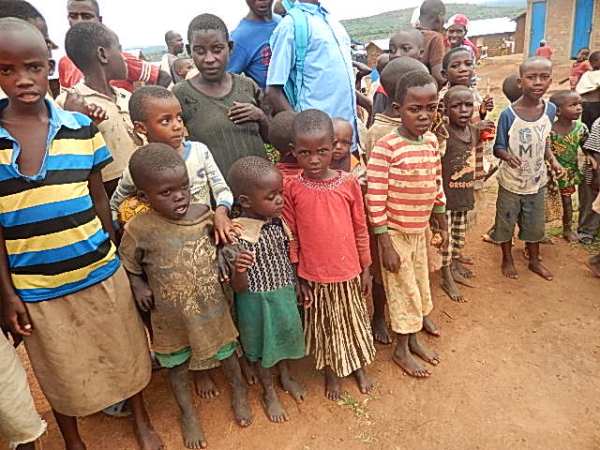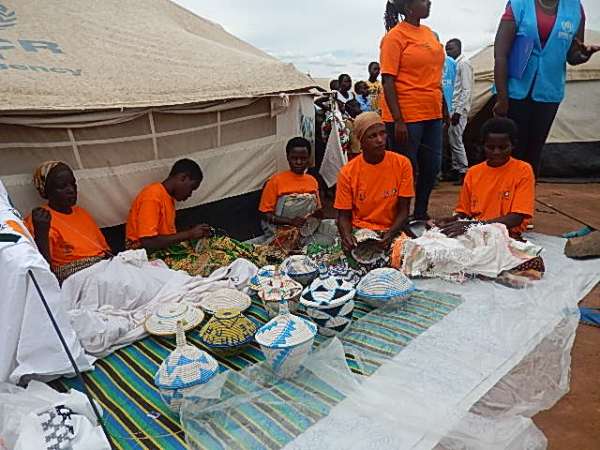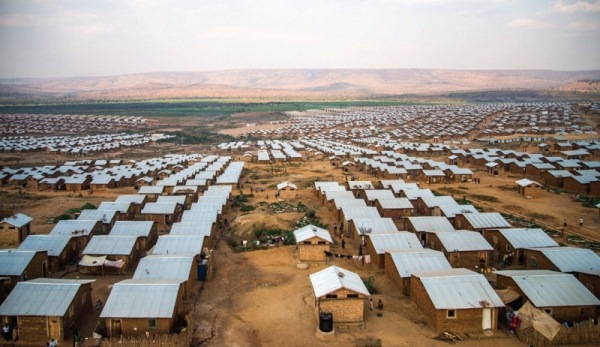
Children of refugees also need to go to school like the children of host communities.
Amon Nzeye, 39, a Burundian refugee established in the Mahama camp in eastern Rwanda since 2015, is a carpenter by profession, but who does not work, due to a lack of tools, and start-up funds. He was happy to hear that Rwanda is preparing to build 250 new classrooms in refugee camps across the country.
Especially since some rooms of these classes will serve as vocational schools which will be created in different sectors, including carpentry, mechanics, construction, welding, plumbing, sewing, cosmetics, shoemaking, skin work, etc … Fortunately, water, electricity, sanitation and roads infrastructure will be put in place.
What comforts Nzeye and other refugees the most is that there will be sufficient electricity (electricity is the engine of the transformation of the environment through many activities that it allows to set up ). Nzeye also is happy at the promises that credit will be given to refugees and host communities to initiate income-generating activities which facilitate the integration of the refugee.
This same program animates hope in the mind of the Congolese refugee, Jacques Mwamba, 43, a couturier by profession, and established for eighteen years in the Congolese refugee camp of Kiziba, district of Karongi, in Western Province.
Mwamba sees an opportunity to strengthen his workshop to make it more productive.

Handicrafts from a cooperative of refugee women in Mahama camp;
“The conditions for my return to eastern DRC are slow to materialize following ongoing insecurity there. It is time that I set up economic activities in Rwanda for my full reintegration and for the future of my four children”, he says.
These reactions from the various refugees in the process of integration in Rwanda follow a meeting of the Rwandan Parliament which adopted on July 23, 2021 the Assistance Project for Refugees and communities close to the six refugee camps in Rwanda, namely: Mahama, Kiziba, Kigeme, Gihembe, Mugombwa, Nyabiheke.
The aim is for refugees and host communities to be supported and to establish sustainable income-generating economic activities. This will facilitate the integration of the refugee by improving his socio-economic conditions and those of the host communities. Children of refugees and those from host communities attend the same schools. The infrastructures of hospitals, markets, etc … are the same.
The construction of the 250 new classrooms is sponsored by Rwanda with funding from the International Development Fund (IDA). It constitutes an additional grant of US $ 20 million (or Rwf 20 billion) for the resettlement of refugees and the support of host communities residing around the camps. The project supports other classrooms that have been set up by the Rwandan government.
This was echoed by the Minister of Finance and Planning, Dr Ndagijimana Uzziel, on July 23, 2021, when he presented the explanation of the project to the Chamber of Deputies of Parliament. The agreement was signed in Kigali on July 9, 2021.
The issue of repetition and overcrowding in schools is one of the issues raised in the Chamber of Deputies, where it is discussed in the bill. MP Emmanuel Bugingo intervened to stress that the children of refugees also need to go to school like the children of host communities.

Mahama Refugee Camp in Rwanda’s Eastern Province
Minister Ndagijimama noted that around 90% of refugees live in areas where six camps have been built (Kirehe, Gatsibo, Gicumbi, Karongi, Nyamagabe and Gisagara), and that it is necessary to improve the living conditions of refugees, but also host communities, by initiating development activities.
“It is in this context that the International Development Agency (IDA) approved an additional grant of US $ 20 million Rwandan to the Government of Rwanda,” he said.
“The objective of the project is to improve the resettlement of refugees with host communities, create basic services, initiate economic activities to improve their livelihoods, ensure that these refugees return to their countries of origin as soon as the crises at the origin of their exile are resolved, ”continued Minister Ndagijimana.
He added that the project includes access to schools, clinics, water, electricity, roads, markets and more. The other aspect is to help them access credit and entrepreneurship, to preserve the environment, in particular to set up rainwater harvesting systems and repair waterways.
There is also a section on support for the management and implementation of this project at national and regional levels. The Refugee and Host Communities Assistance Project for the Social and Economic Integration of Refugees in Rwanda was launched in August 2019, with an additional grant on top of previously disbursed assistance funds.
The Minister of Finance and Planning, Dr Ndagijimana Uzziel, explained that at the end of the year, the project had reached almost 20% in implementation. The World Bank has agreed to provide additional funds as grants to continue the activities.
The General Assembly of the Chamber of Deputies adopted a law finalizing the agreement. It stresses that her activities are mainly focused on markets, relief clinics, roads on water pipes and money that helps to get loans for small profitable activities (End)
